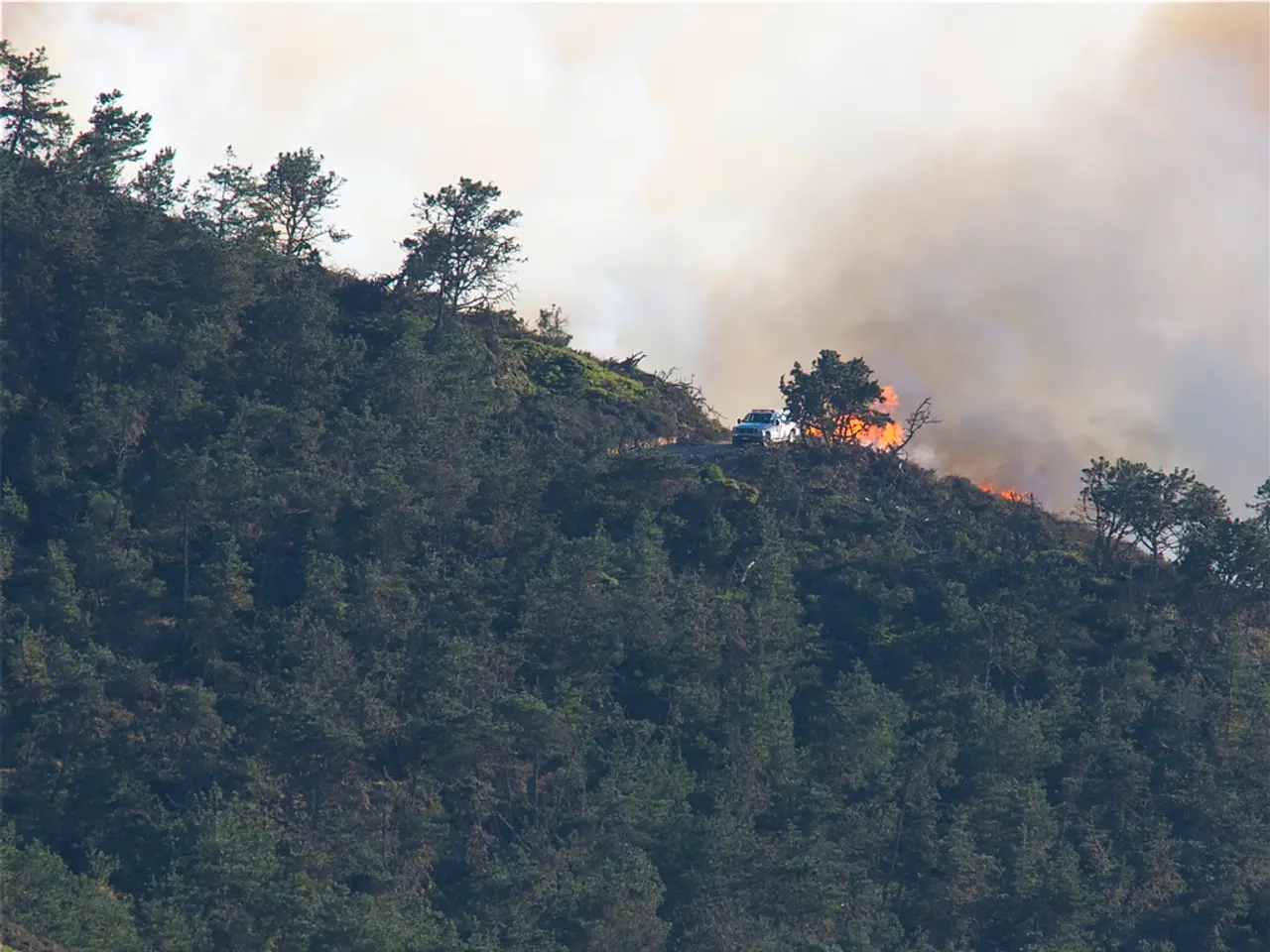Raging wildfires in Greece are met with confrontation from thousands of combatants as Europe swelters under extreme heat.
In Greece and Spain, wildfires are threatening communities and historical sites, as the European continent grapples with an unprecedented heatwave and drought.
In Greece, over 100 active fires have been reported across multiple regions, including Kefalonia, Zakynthos, Attica, and others. The fires are fuelled by high temperatures, gusty winds, low humidity, and a prolonged heatwave, leading to evacuation orders, casualties, and significant property damage.
The Greek authorities have dispatched the Arson Crimes Division to investigate the causes of the wildfires, which include both natural factors and potential human-induced origins. The fire risk is rated very high across broad regions of Greece.
Officials from the Ministry of Climate Crisis & Civil Protection have implemented evacuation orders and coordinated firefighting efforts involving local firefighters and support teams working around the clock. Despite these efforts, fires continue to spread due to adverse weather conditions.
Opposition parties have raised concerns about the government's preparedness and response effectiveness, emphasising the need for more robust prevention measures and improved management strategies.
Prevention measures discussed by officials focus on enhancing early detection and rapid response to fire outbreaks, investigating and prosecuting arson or negligence where applicable, public warnings about the very high fire risk conditions, coordinating civil protection and firefighting resources, and promoting drought and climate crisis mitigation policies to reduce future risks.
Meanwhile, in Spain, wildfires have threatened a world heritage Roman mining site in the northwestern region of Castile and Leon. The Balkans are also straining under the weight of dozens of blazes.
In Portugal, over 2,100 firefighters and 20 aircraft are fighting five major fires, with a particular focus on a fire in Trancoso that has been burning since Saturday.
The ongoing wildfires in Greece and Spain are part of a wider pattern of exceptionally destructive fire seasons across Europe in 2025, connected to climate conditions causing record drought and heat, leading to unprecedented wildfire extents and impacts.
As the continent battles these wildfires, communities are coming together to help. In Trancoso, Portugal, locals are volunteering to assist firefighters in combating the fires. Residents and firefighters, aided by helicopters, are also trying to extinguish flames near Patras, Greece, where thick smoke has reduced visibility.
Easing weather conditions in Montenegro have helped firefighters protect homes, while Britain is experiencing its fourth heatwave of the summer, and wildfires are now a real threat. Authorities have evacuated residents in parts of central and southern Albania due to the fires.
The situation remains difficult, with the fire service spokesman in Greece describing it as such. However, the collective efforts of emergency services, volunteers, and communities offer hope in these challenging times.
- Given the ongoing wildfires in Greece, authorities are investigating the causes, which could involve both natural factors and human-induced origins, specifically in the field of environmental science and climate-change research.
- Despite urgent weather-forecasting and warnings about high fire risk conditions, wildfires continue to spread across Europe, including in Spain where they are threatening a historical Roman mining site.
- As European countries grapple with an unprecedented heatwave and drought, there is a growing emphasis on environmental-science policies and drought mitigation strategies to reduce future risks and improve the management of disasters such as wildfires.








